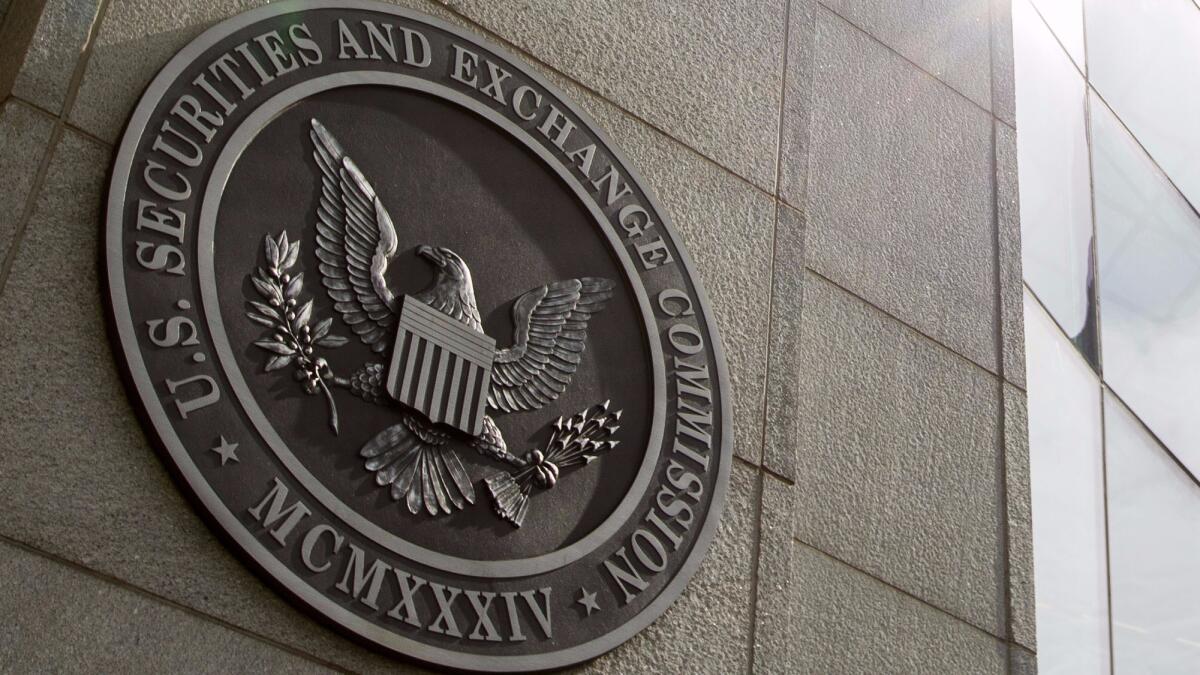SEC urged to seek more disclosure when investors tout short bets

- Share via
A group of law professors is asking the U.S. Securities and Exchange Commission to require that traders who publicize their intent to drive down a company’s share price be more transparent when backing off those bets to avoid market losses.
The request that the SEC seek more disclosure by short sellers, sent to the agency Wednesday, cited an increase in so-called negative activism, in which traders sometimes use fake names to disseminate adverse views of a company.
“The commission should vigilantly ensure that short position disclosure, when voluntarily initiated by a short seller, remains truthful and accurate,” the professors said in a petition lead written by Columbia University professors John C. Coffee and Joshua Mitts. “When a short seller has chosen to disclose a short position, failure to disclose that the position has been closed is doubly misleading,” they wrote, noting that they’re not advocating mandatory reporting of all shorts.
To illustrate the need for more disclosure, the professors highlighted whistleblower Harry Markopolos’ report accusing General Electric Co. of accounting fraud, which drove down the company’s shares in August of last year. Markopolos, who rose to prominence by calling attention to Bernard Madoff’s Ponzi scheme before it became public, said that he was working with a midsize hedge fund that was shorting GE, but the firm’s identity was never disclosed.
The report doesn’t accuse Markopolos of violating the law or intending to manipulate the market, but the professors argue that more information should have been shared about the hedge fund’s position in GE stock and derivatives.
Markopolos didn’t immediately respond to a request for comment sent via LinkedIn.
GE dismissed the claims at the time as “meritless,” and Chief Executive Larry Culp called the report “market manipulation, pure and simple.” GE shares subsequently recovered.
The SEC rarely passes rules based on outside petitions, but such letters can serve as the basis for policy discussions that lead to changes. The professors’ request is notable because it calls for action in the thorny area of regulating short sellers, a frequent nemesis of corporate executives such as Tesla Inc.’s Elon Musk.
“This petition raises critical issues for ordinary investors, and I urge the commission to help us find the best path forward,” said Robert Jackson Jr., who’s leaving his seat on the commission this week to return to New York University as a law professor.
Judy Burns, an SEC spokeswoman, declined to comment.
More to Read
Inside the business of entertainment
The Wide Shot brings you news, analysis and insights on everything from streaming wars to production — and what it all means for the future.
You may occasionally receive promotional content from the Los Angeles Times.










